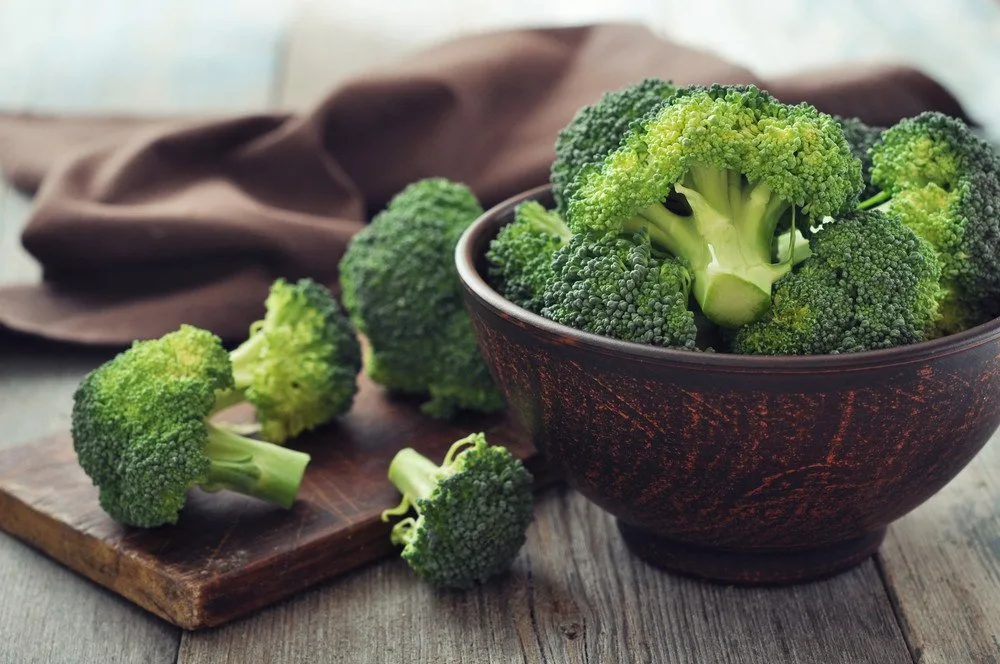Ever lost track of time and ended up drinking your coffee far too late in the day? Most of us have done it at least once. You’re peacefully drinking your coffee, and then suddenly you realize what time is. It’s too close to bedtime, and you just know that you won’t be able to fall asleep. Don’t fret, according to some new research, there might just be a solution. And it’s a seriously strange one at that…it’s broccoli. Yep, it seems that eating broccoli can help you to digest caffeine more quickly so that you can still get your shut-eye.
Caffeine and your sleep

Photo by Anna Rye
Unfortunately for those of us that love a mid-afternoon coffee or even rely on it to get us through the workday, caffeine has a long half-life. It has a half-life of about 6 to 8 hours. Ultimately, this is a problem if you drink your coffee too late in the day, as it can lead to difficulty when it comes to relaxing and winding down for bed.
For example, clinical psychologist and board-certified sleep specialist Michael J. Breus, Ph.D. explains that if you drink coffee at 2 pm, only 50% of it is out of your body by 10:00 p.m.
What does this mean for us? Well, it means that we need to stop drinking coffee and any other caffeinated beverages much earlier in the afternoon.
However, despite this issue when it comes to the amount of time that caffeine spends in the body, it seems like there might be a vegetable that could help us to digest it faster. And wait for it…the vegetable we should be pinning our caffeinated hopes on is broccoli.
How broccoli might help
There’s no doubt that this sounds crazy, but there really seems to be a lot to back this up. Breus mentioned during a recent roundtable discussion on the science of sleep that, “if you happen to have caffeine late at night, broccoli may help you digest it faster”. You might well be thinking broccoli? Broccoli is the solution to metabolizing caffeine more quickly? That’s absolutely crazy!
![assemble [longevity live]](https://longevitylive.com/wp-content/uploads/2018/10/bowl-broccoli-cooking-1359326-320x231.jpg)
I’ll admit that the first time I delved into it, it sounded just as crazy to me. But the science here speaks for itself. A 2007 study published in the journal Current Drug Metabolism found that broccoli “induced the liver’s cytochrome P450 enzymes” which aided in the metallization of caffeine in the participants.
It does have to be mentioned here that these participants ate a lot of broccoli. To be exact, 500 grams of the vegetable equates to about five and a half cups. Participants were also given 100 milligrams of caffeine in tablet form, which is around the caffeine content of one cup of coffee. The study clearly showed that eating broccoli (albeit a lot of it) did cause caffeine to metabolize more quickly in the participants
Broccoli isn’t the only vegetable that might help
A more recent analysis of 23 dietary intervention trials showed that other cruciferous veggies (of which ![vegan options [longevity live]](https://longevitylive.com/wp-content/uploads/2019/09/assorted-assortment-broccoli-209426-320x214.jpg) broccoli is one) might also help. This includes Brussels sprouts, cabbage, cauliflower, radish, and watercress, all of which might well be beneficial when it comes to metabolizing caffeine (and other substances) more quickly.
broccoli is one) might also help. This includes Brussels sprouts, cabbage, cauliflower, radish, and watercress, all of which might well be beneficial when it comes to metabolizing caffeine (and other substances) more quickly.
Of course, all of these vegetables are also hugely dense in nutrients and beneficial in their own right.
The takeaway
Let’s be honest, eating more vegetables is never going to be bad for you. In fact, you’ll likely gain a huge amount of benefits from eating more greens and increasing your intake of cruciferous vegetables. But it seems like these veggies might also be great if you end up having a cup of coffee too late in the afternoon.
Of course, it’s always best to try and avoid the problem entirely. This means trying to drink your coffee earlier in the day so that it doesn’t affect your sleep. If you do slip up or just really need that cup of coffee in the afternoon to keep going, broccoli might well be your new best friend.
References
https://www.mindbodygreen.com/articles/how-broccoli-can-help-you-digest-caffeine-more-quickly
https://pubmed.ncbi.nlm.nih.gov/32086800/
https://www.mindbodygreen.com/wc/dr-michael-j-breus
https://pubmed.ncbi.nlm.nih.gov/17266520/
https://www.coffeeandhealth.org/topic-info/caffeine-caffeine-and-metabolism



![women [longevity live]](https://longevitylive.com/wp-content/uploads/2020/01/photo-of-women-walking-down-the-street-1116984-100x100.jpg)










